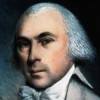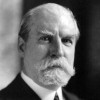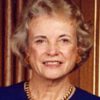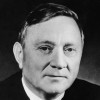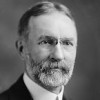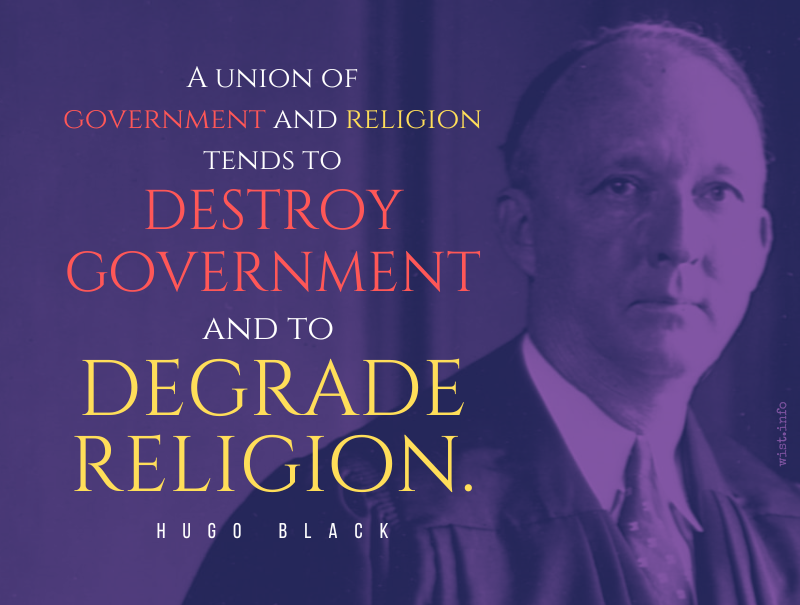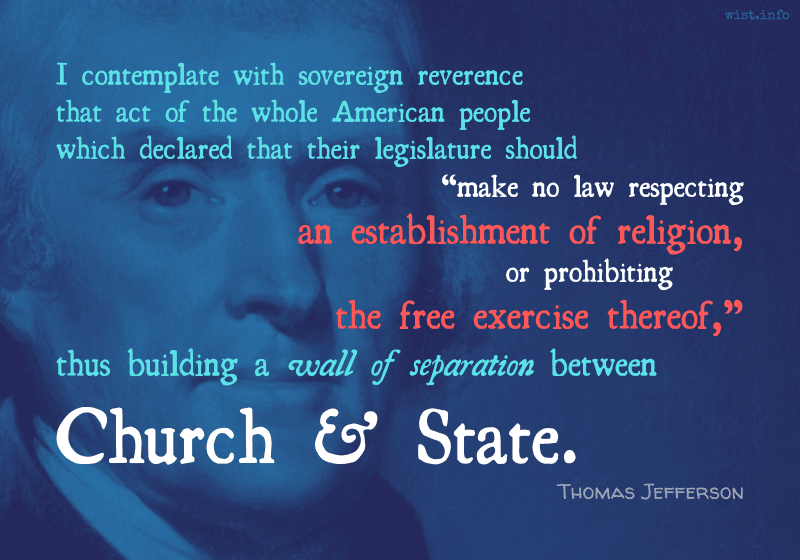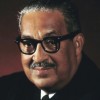I was held back by mere trifles, the most paltry inanities, all my old attachments. They plucked at my garment of flesh and whispered, “Are you going to dismiss us? From this moment we shall never be with you again, for ever and ever. From this moment you will never again be allowed to do this thing or that, for evermore.” What was it, my God, that they meant when they whispered “this thing or that?” Things so sordid and so shameful that I beg you in your mercy to keep the soul of your servant free from them!
[Retinebant nugae nugarum et vanitates vanitantium, antiquae amicae meae, et succutiebant vestem meam carneam et submurmurabant, “dimittisne nos?” et “a momento isto non erimus tecum ultra in aeternum” et “a momento isto non tibi licebit hoc et illud ultra in aeternum.” et quae suggerebant in eo quod dixi “hoc et illud,” quae suggerebant, deus meus, avertat ab anima servi tui misericordia tua! Quas sordes suggerebant, quae dedecora!]
Augustine of Hippo (354-430) Christian church father, philosopher, saint [b. Aurelius Augustinus]
Confessions, Book 8, ch. 11 / ¶ 26 (8.11.26) (c. AD 398) [tr. Pine-Coffin (1961)]
(Source)
(Source (Latin)). Alternate translations:
The very toys of toys, and vanities of vanities, my ancient mistresses, still held me; they plucked my fleshy garment, and whispered softly, "Dost thou cast us off? and from that moment shall we no more be with thee for ever? and from that moment shall not this or that be lawful for thee for ever?" And what was it which they suggested in that I said, "this or that," what did they suggest, O my God? Let Thy mercy turn it away from the soul of Thy servant. What defilements did they suggest! what shame!
[tr. Pusey (1838)]
The very toys of toys, and vanities of vanities, my old mistresses, still enthralled me; they shook my fleshly garment, and whispered softly, “Dost thou part with us? And from that moment shall we no more be with thee for ever? And from that moment shall not this or that be lawful for thee for ever?” And what did they suggest to me in the words “this or that?” What is it that they suggested, O my God? Let Thy mercy avert it from the soul of Thy servant. What impurities did they suggest! What shame!
[tr. Pilkington (1876)]
Toys of toys and vanities of vanities, my old loves held me back, and made my fleshly garment quiver whispering softly, “Dost thou leave us? and from that moment shall we never be with thee any more? And from this moment will not this and that be allowed thee for ever?” And what did they suggest in that which I call "this or that"? what did they suggest, my God ? Let Thy Mercy turn it away from the soul of Thy servant! What defilements did they suggest! what shameful things!
[tr. Hutchings (1890)]
Trifles of trifles and vanities of vanities, my old mistresses, held me back; they caught hold of the garment of my flesh and whispered in my ear, "Can you let us go? and from that instant we shall see you no more for ever; and from that instant this and that will be forbidden you for ever.” What did they mean, O m God, what did they mean by "this and that?" O let Thy mercy guard the soul of Thy servant from the vileness, the shame that they meant!
[tr. Bigg (1897), 8.11.2]
Those trifles of all trifles, and vanities of vanities, my one-time mistresses, held me back, plucking at my garment of flesh and murmuring softly: “Are you sending us away?” And “From this moment shall we not be with you, now or forever?” And “From this moment shall this or that not be allowed you, now or forever?” What were they suggesting to me in the phrase I have written “this or that,” what were they suggesting to me, O my God? Do you in your mercy keep from the soul of Your servant the vileness and uncleanness they were suggesting.
[tr. Sheed (1943)]
It was, in fact, my old mistresses, trifles of trifles and vanities of vanities, who still enthralled me. They tugged at my fleshly garments and softly whispered: “Are you going to part with us? And from that moment will we never be with you any more? And from that moment will not this and that be forbidden you forever?” What were they suggesting to me in those words “this or that”? What is it they suggested, O my God? Let thy mercy guard the soul of thy servant from the vileness and the shame they did suggest!
[tr. Outler (1955)]
My lovers of old, trifles of trifles and vanities of vanities held me back. They plucked at my fleshly garment, and they whispered softly: “Do you cast us off?” and “From that moment we shall no more be with you forever and ever!” and again, “From that moment no longer will this thing and that be allowed to you, forever and ever!” What did they suggest by what I have called “this thing and that,” what, O my God, did they suggest? May your mercy turn away all that from your servant’s soul! What filth did they suggest! What deeds of shame!
[tr. Ryan (1960)]
Toys and trifles, utter vanities had been my mistresses, and now they were holding me back, pulling me by the garment of my flesh and softly murmuring in my ear: “Are you getting rid of us?” and “From this moment shall we never be with you again for all eternity?” and “From this moment will you never for all eternity be allowed to do this or to do that?” My God, what was it, what was it that they suggested in those words “this” or “that” which I have just written? I pray you in your mercy to keep such things from the soul of your servant. How filthy, how shameful were these things they were suggesting!
[tr. Warner (1963)]
The trifles of trifles, the worthless amid the worthless, past objects of my affections, were what was holding me, pulling at the garment of my flesh and whispering: "Are you sending us away? From this moment we shall not be with you for eternity? And from this moment you will not be permitted to do this and that for ever?" And what did they suggest by my "this and that", my God? Let your mercy turn it away from your servant’s soul. What impurities, what acts of shame they suggested.
[tr. Blaiklock (1983)]
Quotations about:
first amendment
Note not all quotations have been tagged, so Search may find additional quotes on this topic.
The civil rights of none shall be abridged on account of religious belief or worship, nor shall any national religion be established, nor shall the full and equal rights of conscience be in any manner, or on any pretext, infringed.
The people shall not be deprived or abridged of their right to speak, to write, or to publish their sentiments; and the freedom of the press, as one of the great bulwarks of liberty, shall be inviolable.
The people shall not be restrained from peaceably assembling and consulting for their common good; nor from applying to the Legislature by petitions, or remonstrances, for redress of their grievances.
James Madison (1751-1836) American statesman, political theorist, US President (1809-17)
Speech Introducing Proposed Constitutional Amendments (1789-06-08)
(Source)
Speech before the House of Representatives, proposing a Bill of Rights amending the US Constitution. This was the first draft of the text that would go on to become the First Amendment.
I find it difficult to see how talk about sex can be placed under the kind of censorship the Court here approves without subjecting our society to more dangers than we can anticipate at the moment. It was to avoid exactly such dangers that the First Amendment was written and adopted. For myself I would follow the course which I believe is required by the First Amendment, that is, recognize that sex at least as much as any other aspect of life is so much a part of our society that its discussion should not be made a crime.
Hugo Black (1886-1971) American politician and jurist, US Supreme Court Justice (1937-71)
Ginzburg v. United States, 383 U.S. 463, 482 (1966) [dissent]
(Source)
The First Amendment is truly the heart of the Bill of Rights. The Framers balanced its freedoms of religion, speech, press, assembly and petition against the needs of a powerful central government, and decided that in those freedoms lies this nation’s only true security. They were not afraid for men to be free. We should not be.
Hugo Black (1886-1971) American politician and jurist, US Supreme Court Justice (1937-71)
James Madison Lecture, NYU School of Law (1960-02-17)
(Source)
The inaugural Madison lecture. Reprinted as "The Bill of Rights," NYU Law Review, Vol. 35 (1960-04).
Since the earliest days, philosophers have dreamed of a country where the mind and spirit of man would be free; where there would be no limits to inquiry; where men would be free to explore the unknown and to challenge the most deeply rooted beliefs and principles. Our First Amendment was a bold effort to adopt this principle — to establish a country with no legal restrictions of any kind upon the subjects people could investigate, discuss, and deny.
Hugo Black (1886-1971) American politician and jurist, US Supreme Court Justice (1937-71)
James Madison Lecture, NYU School of Law (1960-02-17)
(Source)
The inaugural Madison lecture. Reprinted as "The Bill of Rights," NYU Law Review, Vol. 35 (Apr 1960)
History should teach us then, that in times of high emotional excitement minority parties and groups which advocate extremely unpopular social or governmental innovations will always be typed as criminal gangs and attempts will always be made to drive them out. It was knowledge of this fact, and of its great dangers, that caused the Founders of our land to enact the First Amendment as a guarantee that neither Congress nor the people would do anything to hinder or destroy the capacity of individuals and groups to seek converts and votes for any cause, however radical or unpalatable their principles might seem under the accepted notions of the time.
Hugo Black (1886-1971) American politician and jurist, US Supreme Court Justice (1937-71)
Barenblatt v. United States, 360 U.S. 109, 151 (1959) [dissent]
(Source)
Our Constitution assumes that the common sense of the people and their attachment to our country will enable them, after free discussion, to withstand ideas that are wrong. To say that our patriotism must be protected against false ideas by means other than these is, I think, to make a baseless charge. Unless we can rely on these qualities—if, in short, we begin to punish speech — we cannot honestly proclaim ourselves to be a free Nation and we have lost what the Founders of this land risked their lives and their sacred honor to defend.
Hugo Black (1886-1971) American politician and jurist, US Supreme Court Justice (1937-71)
Barenblatt v. United States, 360 U.S. 109, 146 (1959) [dissent]
(Source)
These rights may be abused by using speech or press or assembly in order to incite to violence and crime. The people, through their legislatures may protect themselves against that abuse. But the legislative intervention, can find constitutional justification only by dealing with the abuse. The rights themselves must not be curtailed.The greater the importance of safeguarding the community from incitements to the overthrow of our institutions by force and violence, the more imperative is the need to preserve inviolate the constitutional rights of free speech, free press and free assembly in order to maintain the opportunity for free political discussion, to the end that government may be responsive to the will of the people and that changes, if desired, may be obtained by peaceful means. Therein lies the security of the Republic, the very foundation of constitutional government.
Charles Evans Hughes, Sr. (1862-1948) American statesman, politician, Supreme Court Justice (1910-1916, 1930-1941)
De Jonge v. Oregon, 299 U.S. 353, 364-365 (1937) [majority]
(Source)
The very reason for the First Amendment is to make the people of this country free to think, speak, write and worship as they wish, not as the Government commands.
Hugo Black (1886-1971) American politician and jurist, US Supreme Court Justice (1937-71)
Machinists v. Street, 367 U.S. 740, 788 (1961) [dissenting]
(Source)
The case is frequently called "IAM v. Street" (International Association of Machinists).
The prayer of each man from his soul must be his and his alone. This is the genius of the First Amendment. If there is anything clear in the First Amendment, it is that the right of the people to pray in their own way is not be controlled by the election return.
Hugo Black (1886-1971) American politician and jurist, US Supreme Court Justice (1937-71)
Engel v. Vitale, 370 U.S. 421, 425 (1962) [extemporaneous remarks]
(Source)
Added by Black during his reading of the majority opinion, and not part of the written ruling. The passage follows, "It is no part of the business of government to compose official prayers for any group of the American people to recite as a part of a religious program carried on by government."
There can, of course, be no doubt that New York’s program of daily classroom invocation of God’s blessings as prescribed in the Regents’ prayer is a religious activity. […] We think that the constitutional prohibition against laws respecting an establishment of religion must at least mean that, in this country, it is no part of the business of government to compose official prayers for any group of the American people to recite as a part of a religious program carried on by government.
Hugo Black (1886-1971) American politician and jurist, US Supreme Court Justice (1937-71)
Engel v. Vitale, 370 U.S. 421, 424-425 (1962) [majority opinion]
(Source)
This case ruled that organized school prayer was unconstitutional. The prayer in question, to be recited by each class before their teacher each day, read: "Almighty God, we acknowledge our dependence upon Thee, and we beg Thy blessings upon us, our parents, our teachers and our Country."
It is true that many Americans find the Commandments in accord with their personal beliefs. But we do not count heads before enforcing the First Amendment.
Sandra Day O'Connor (b. 1930) American attorney, politician, Supreme Court justice (1981-2006)
McCreary County v. American Civil Liberties Union, 545 U.S. 844 (2005) [concurring]
(Source)
Declaring Ten Commandments displays in two Kentucky county courthouses to be unconstitutional.
Right conclusions are more likely to be gathered out of a multitude of tongues, than through any kind of authoritative selection. To many this is, and will always be, folly; but we have staked upon it our all.
Learned Hand (1872-1961) American jurist
United States v Associated Press, 52 F. Supp. 362, 372 (1943)
(Source)
Any test that turns on what is offensive to the community’s standards is too loose, too capricious, too destructive of freedom of expression to be squared with the First Amendment. Under that test, juries can censor, suppress, and punish what they don’t like, provided the matter relates to “sexual impurity” or has a tendency “to excite lustful thoughts”. This is community censorship in one of its worst forms. It creates a regime where in the battle between the literati and the Philistines, the Philistines are certain to win.
William O. Douglas (1898-1980) US Supreme Court justice (1939-75)
Roth v. United States, 354 U.S. 476, 512, dissenting opinion (1957)
(Source)
Thus, if the First Amendment guarantee of freedom of speech and press is to mean anything in this field, it must allow protests even against the moral code that the standard of the day sets for the community. In other words, literature should not be suppressed merely because it offends the moral code of the censor.
William O. Douglas (1898-1980) US Supreme Court justice (1939-75)
Roth v. United States, 354 U.S. 476, 513, dissenting opinion (1957)
(Source)
I loved coming to the US in 1992, mostly because I loved the idea that freedom of speech was paramount. I still do. With all its faults, the US has Freedom of Speech. The First Amendment states that you can’t be arrested for saying things the government doesn’t like. You can say what you like, write what you like, and know that the remedy to someone saying or writing or showing something that offends you is not to read it, or to speak out against it. I loved that I could read and make my own mind up about something.
Neil Gaiman (b. 1960) British author, screenwriter, fabulist
Blog entry (2008-12-01), “Why defend freedom of icky speech?”
(Source)
Another purpose of the Establishment Clause rested upon an awareness of the historical fact that governmentally established religions and religious persecutions go hand in hand. The Founders knew that only a few years after the Book of Common Prayer became the only accepted form of religious services in the established Church of England, an Act of Uniformity was passed to compel all Englishmen to attend those services and to make it a criminal offense to conduct or attend religious gatherings of any other kind — a law which was consistently flouted by dissenting religious groups in England and which contributed to widespread persecutions of people like John Bunyan who persisted in holding “unlawful [religious] meetings … to the great disturbance and distraction of the good subjects of this kingdom ….” And they knew that similar persecutions had received the sanction of law in several of the colonies in this country soon after the establishment of official religions in those colonies. It was in large part to get completely away from this sort of systematic religious persecution that the Founders brought into being our Nation, our Constitution, and our Bill of Rights with its prohibition against any governmental establishment of religion.
Hugo Black (1886-1971) American politician and jurist, US Supreme Court Justice (1937-71)
Engel v. Vitale, 370 U.S. 421, 424-425 (1962) [majority opinion]
(Source)
But the purposes underlying the Establishment Clause go much further than that. Its first and most immediate purpose rested on the belief that a union of government and religion tends to destroy government and to degrade religion. The history of governmentally established religion, both in England and in this country, showed that whenever government had allied itself with one particular form of religion, the inevitable result had been that it had incurred the hatred, disrespect and even contempt of those who held contrary beliefs. That same history showed that many people had lost their respect for any religion that had relied upon the support of government to spread its faith.
The Establishment Clause thus stands as an expression of principle on the part of the Founders of our Constitution that religion is too personal, too sacred, too holy, to permit its “unhallowed perversion” by a civil magistrate.
Hugo Black (1886-1971) American politician and jurist, US Supreme Court Justice (1937-71)
Engel v. Vitale, 370 U.S. 421, 431-432 (1962) [majority opinion]
(Source)
The word “security” is a broad, vague generality whose contours should not be invoked to abrogate the fundamental law embodied in the First Amendment. The guarding of military and diplomatic secrets at the expense of informed representative government provides no real security for our Republic.
Hugo Black (1886-1971) American politician and jurist, US Supreme Court Justice (1937-71)
New York Times Co. v. United States, 403 U.S. 713, 719 (1971) [concurring]
(Source)
Our Founders were no more willing to let the content of their prayers and their privilege of praying whenever they pleased be influenced by the ballot box than they were to let these vital matters of personal conscience depend upon the succession of monarchs. The First Amendment was added to the Constitution to stand as a guarantee that neither the power nor the prestige of the Federal Government would be used to control, support or influence the kinds of prayer the American people can say — that the people’s religions must not be subjected to the pressures of government for change each time a new political administration is elected to office. Under that Amendment’s prohibition against governmental establishment of religion, as reinforced by the provisions of the Fourteenth Amendment, government in this country, be it state or federal, is without power to prescribe by law any particular form of prayer which is to be used as an official prayer in carrying on any program of governmentally sponsored religious activity.
Hugo Black (1886-1971) American politician and jurist, US Supreme Court Justice (1937-71)
Engel v. Vitale, 370 U.S. 421, 429-30 (1962) [majority opinion]
(Source)
Another and more special provision has been made by one of the amendments to the Constitution, which expressly declares, that “Congress shall make no law respecting an establishment of religion, or prohibiting the free exercise thereof, or abridging the freedom of speech, or of the press,” thereby guarding, in the same sentence, and under the same words, the freedom of religion, of speech, and of the press, insomuch that whatever violated either throws down the sanctuary which covers the others, — and that libels, falsehood, and defamation, equally with heresy and false religion, are withheld from the cognizance of federal tribunals.
Thomas Jefferson (1743-1826) American political philosopher, polymath, statesman, US President (1801-09)
“Kentucky Resolutions,” Resolution 3 (1798)
(Source)
In protest of the Alien and Sedition Acts.
Certainly the First Amendment’s language leaves no room for inference that abridgments of speech and press can be made just because they are slight. That Amendment provides, in simple words, that “Congress shall make no law … abridging the freedom of speech, or of the press.” I read “no law … abridging” to mean no law abridging.
Hugo Black (1886-1971) American politician and jurist, US Supreme Court Justice (1937-71)
Smith v. California, 361 U.S. 147, 157 (1959) [concurring]
(Source)
The constitutional freedom of religion [is] the most inalienable and sacred of all human rights.
Thomas Jefferson (1743-1826) American political philosopher, polymath, statesman, US President (1801-09)
Virginia Board of Visitors Minutes (1819)
(Source)
To hold that a state cannot, consistently with the First and Fourteenth Amendments, utilize its public school system to aid any or all religious faiths or sects in the dissemination of their doctrines and ideals does not, as counsel urge, manifest a governmental hostility to religion or religious teachings. A manifestation of such hostility would be at war with our national tradition as embodied in the First Amendment’s guaranty of the free exercise of religion. For the First Amendment rests upon the premise that both religion and government can best work to achieve their lofty aims if each is left free from the other within its respective sphere.
Hugo Black (1886-1971) American politician and jurist, US Supreme Court Justice (1937-71)
McCollum v. Board of Education, 333 U.S. 203, 211-212 (1948) [majority opinion]
(Source)
That [First] Amendment requires the state to be a neutral in its relations with groups of religious believers and nonbelievers; it does not require the state to be their adversary. State power is no more to be used so as to handicap religions than it is to favor them.
Hugo Black (1886-1971) American politician and jurist, US Supreme Court Justice (1937-71)
Everson v. Board of Education, 330 U.S. 1, 18 (1947) [majority opinion]
(Source)
The “establishment of religion” clause of the First Amendment means at least this: Neither a state nor the Federal Government can set up a church. Neither can pass laws which aid one religion, aid all religions, or prefer one religion over another. Neither can force nor influence a person to go to or to remain away from church against his will or force him to profess a belief or disbelief in any religion. No person can be punished for entertaining or professing religious beliefs or disbeliefs, for church attendance or non-attendance. No tax in any amount, large or small, can be levied to support any religious activities or institutions, whatever they may be called, or whatever form they may adopt to teach or practice religion. Neither a state nor the Federal Government can, openly or secretly, participate in the affairs of any religious organizations or groups and vice versa. In the words of Jefferson, the clause against establishment of religion by law was intended to erect “a wall of separation between Church and State.”
The First Amendment has erected a wall between church and state. That wall must be kept high and impregnable. We could not approve the slightest breach.
Hugo Black (1886-1971) American politician and jurist, US Supreme Court Justice (1937-71)
Everson v. Board of Education, 330 U.S. 1, 18 (1947) [majority opinion]
(Source)
Believing with you that religion is a matter which lies solely between Man & his God, that he owes account to none other for his faith or his worship, that the legitimate powers of government reach actions only, & not opinions, I contemplate with sovereign reverence that act of the whole American people which declared that their legislature should “make no law respecting an establishment of religion, or prohibiting the free exercise thereof,” thus building a wall of separation between Church & State. adhering to this expression of the supreme will of the nation in behalf of the rights of conscience, I shall see with sincere satisfaction the progress of those sentiments which tend to restore to man all his natural rights, convinced he has no natural right in opposition to his social duties.
Thomas Jefferson (1743-1826) American political philosopher, polymath, statesman, US President (1801-09)
Letter to the Danbury Baptists (1 Jan 1802)
(Source)
Addressed to "messrs. Nehemiah Dodge, Ephraim Robbins, & Stephen S. Nelson, a committee of the Danbury Baptist association in the state of Connecticut."
I consider the Government of the United States as interdicted by the Constitution of the United States from meddling with religious institutions, their doctrines, discipline, or exercises [….] But it is only proposed that I should recommend, not prescribe, a day of fasting and praying. That is, I should indirectly assume to the United States an authority over religious exercises, which the Constitution has directly precluded them from. It must be meant, too, that this recommendation is to carry some authority and to be sanctioned by some penalty on those who disregard it; not indeed of fine and imprisonment, but of some degree of proscription perhaps in public opinion. And does the change in the nature of the penalty make the recommendation less a law of conduct for those to whom it is directed? […] Every one must act according to the dictates of his own reason and mine tells me that civil powers alone have been given the President of the United States, and no authority to direct the religious exercise of his constituents.
Thomas Jefferson (1743-1826) American political philosopher, polymath, statesman, US President (1801-09)
Letter to Samuel Miller (23 Jan 1808)
(Source)
On refusing to issue a Thanksgiving proclamation during his presidency.
I would give the broad sweep of the First Amendment full support. I have the same confidence in the ability of our people to reject noxious literature as I have in their capacity to sort out the true from the false in theology, economics, or any other field.
William O. Douglas (1898-1980) US Supreme Court justice (1939-75)
Roth v. United States, 354 U.S. 476, 514, dissenting opinion (1957)
(Source)
The priceless heritage of our society is the unrestricted constitutional right of each member to think as he will. Thought control is a copyright of totalitarianism, and we have no claim to it. It is not the function of our Government to keep the citizen from falling into error; it is the function of the citizen to keep the Government from falling into error. We could justify any censorship only when the censors are better shielded against error than the censored.
Robert H. Jackson (1892-1954) US Supreme Court Justice (1941-54), lawyer, jurist, politician
American Communications Assn. v. Douds, 339 U.S. 382, 442-443 (1950) [concurrence and dissent]
(Source)
[T]he price of freedom of religion or of speech or of the press is that we must put up with, and even pay for, a good deal of rubbish.
Robert H. Jackson (1892-1954) US Supreme Court Justice (1941-54), lawyer, jurist, politician
United States v. Ballard, 322 U.S. 78 (1944) [dissent]
(Source)
My view is, without deviation, without exception, without any ifs, buts or whereases, that freedom of speech means that you shall not do something to people either for the views they have or the views they express or the words they speak or write.
Hugo Black (1886-1971) American politician and jurist, US Supreme Court Justice (1937-71)
Interview by Edmond Cahn, New York University Law School (1962)
Published in "Mr. Justice Black and First Amendment Absolutes: A Public Interview," New York University Law Review 37 (1962): 549, and referenced in "Minority Opinion," Time (1962-06-22).
Black reiterated his absolutist point in his third Carpentier Lecture at Columbia University (1968-03-21), collected in A Constitutional Faith (1968):
My view is, without deviation, without exception, without any ifs, buts or whereases, that freedom of speech means that government shall not do anything to people, or, in the words of the Magna Carta, move against people, either for the views they have or the views they express or the words they speak or write.
If the First Amendment means anything, it means that a State has no business telling a man, sitting alone in his own house, what books he may read or what films he may watch.
First as to Speech. That privilege rests upon the premise that there is no proposition so uniformly acknowledged that it may not be lawfully challenged, questioned, and debated. It need not rest upon the further premise that there are no propositions that are not open to doubt; it is enough, even if there are, that in the end it is worse to suppress dissent than to run the risk of heresy.
Learned Hand (1872-1961) American jurist
“The Guardians,” Oliver Wendell Holmes Lecture #3, Harvard University (1958)
(Source)
Speaking of the First Amendment to the US Constitution.


